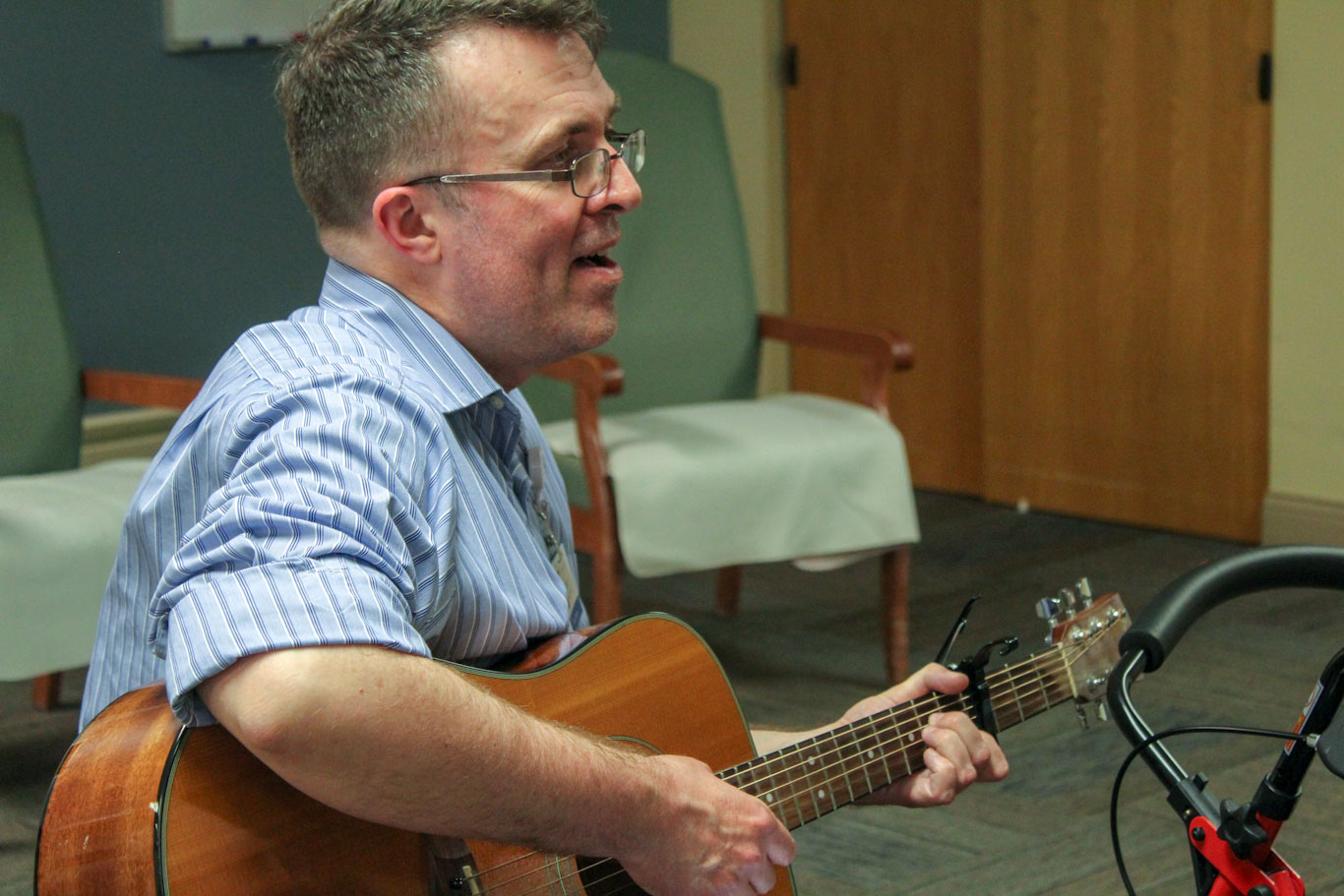You might say that for hospice music therapists like Roger Scott, they perform their work in the key of C, where the “C” translates to care, compassion and comfort.
Along with colleague Miranda Eden, Scott is one of two board-certified music therapists employed by Emmanuel Hospice. He considers the complementary therapy the twosome provides arguably as vital as traditional physical care administered by medical staff. And it’s a popular choice among patients and their loved ones. In 2023, Scott and Eden made more than 1,770 patient visits.
“It’s a very intense, rewarding experience,” says Scott, who hails from California but settled in Michigan after earning a degree in music therapy at Western Michigan University.
He traces his interest in music therapy back to the year 2000, when he started serving as a member of the U.S. Army Europe Band and Chorus, primarily as a vocalist.
“When we’d perform for soldiers, it really seemed to make a difference to them,” he says, noting that after his discharge, he went to a conference for music therapists and “fell in love with it.”
At Emmanuel Hospice, music therapy is offered as one of many ways to enhance a patient’s life, engage the senses and create joyful memories. During the last two years working with Emmanuel, Scott has discovered that every day – and every patient – is different.
During a session, he’ll often sing and strum the guitar, inviting patients and their caregivers to sing or hum along. He’ll even record a patient’s heartbeat and then marry it to music, so it can be enjoyed time and time again.
Heartbeat recordings are an opportunity for patients to create a legacy gift for their loved ones. The accompanying music often speaks to a review of their life and serves as a keepsake for caregivers to cherish after the patient has passed.
What patients might need in the way of music therapy is largely tied to how they express themselves to any one of their care team members. Communication is key among Emmanuel colleagues in order to provide holistic care that supports the patient’s mind, body and spirit.
The end result often manifests itself in a reduction of the patient’s pain, a chance to work through emotions and as a special way to recount memories as they embark on an otherwise difficult journey. Music therapy can be employed at a hospital, home or other living center – wherever the patient is receiving care.
Scott has played everything from rock to pop to Gregorian chants for his patients, and says it’s surprising how many requests he fields for arias from operas, such as “Nessun Dorma,” which debuts during the final act of the Puccini opera “Turandot.”
Whatever the music, Scott says it’s common for the patient to choose something near and dear – hymns or folk tunes or something from their heyday – that reminds them of significant people and events from throughout their lives.
“Often times, people will light up when they hear something that was popular when they were younger,” he says. “It meets their needs, and can help them work through a tough time.”
Music therapy can bring up a range of emotions while helping manage anticipatory grief, pain and anxiety. It can provide great comfort, as well as sensory stimulation and self-expression.
“It’s always hard not to smile when they’re smiling,” Scott says, “and it’s hard not to cry when they’re crying. You do the best you can for them, and in doing so, seek those moments when you can bring patients and their family members to a place of peace.”
Music therapy is one of several complementary therapies and services Emmanuel Hospice offers. To learn more, visit EmmanuelHospice.org/holistic-care or call 616.719.0919.
